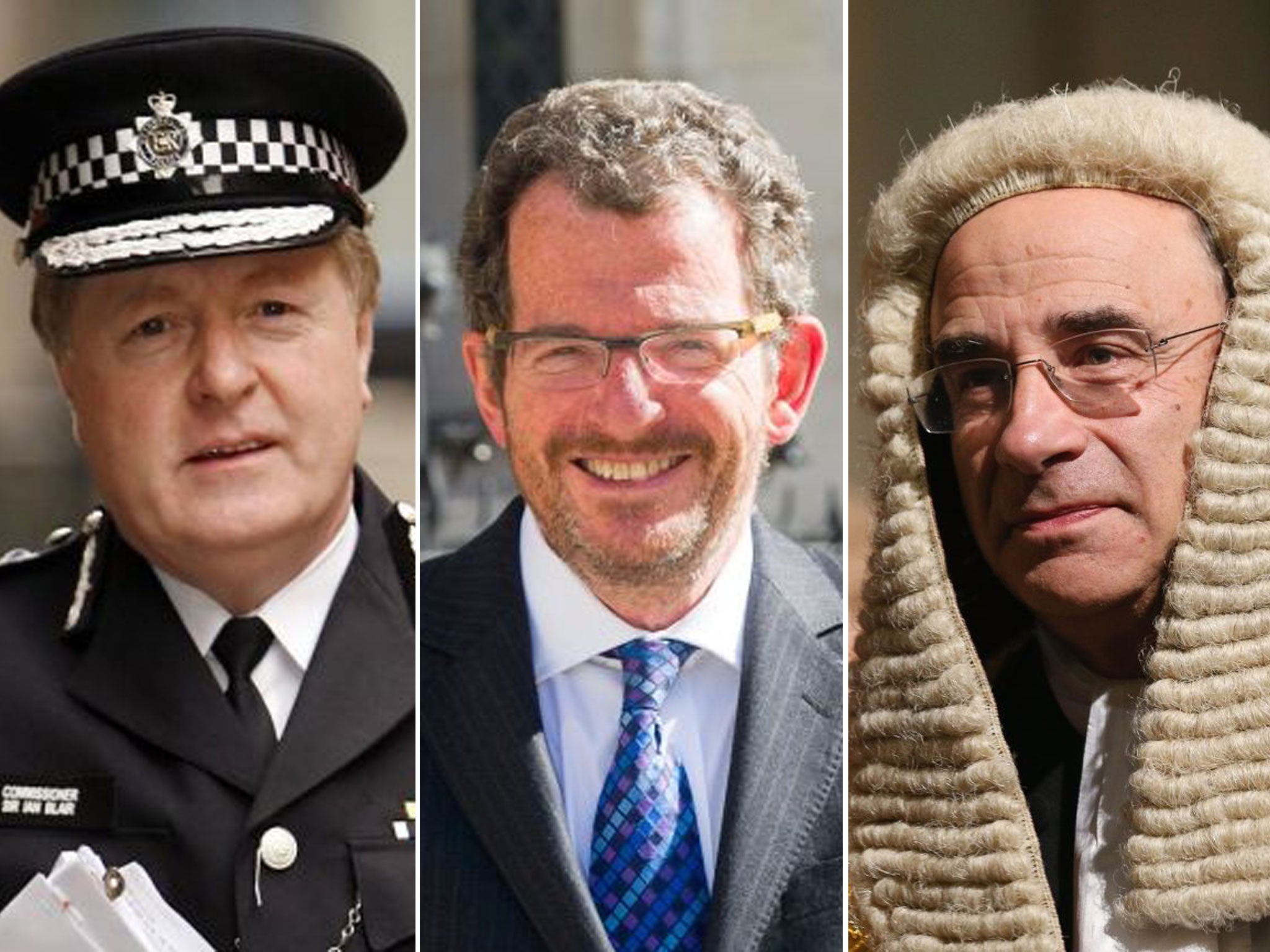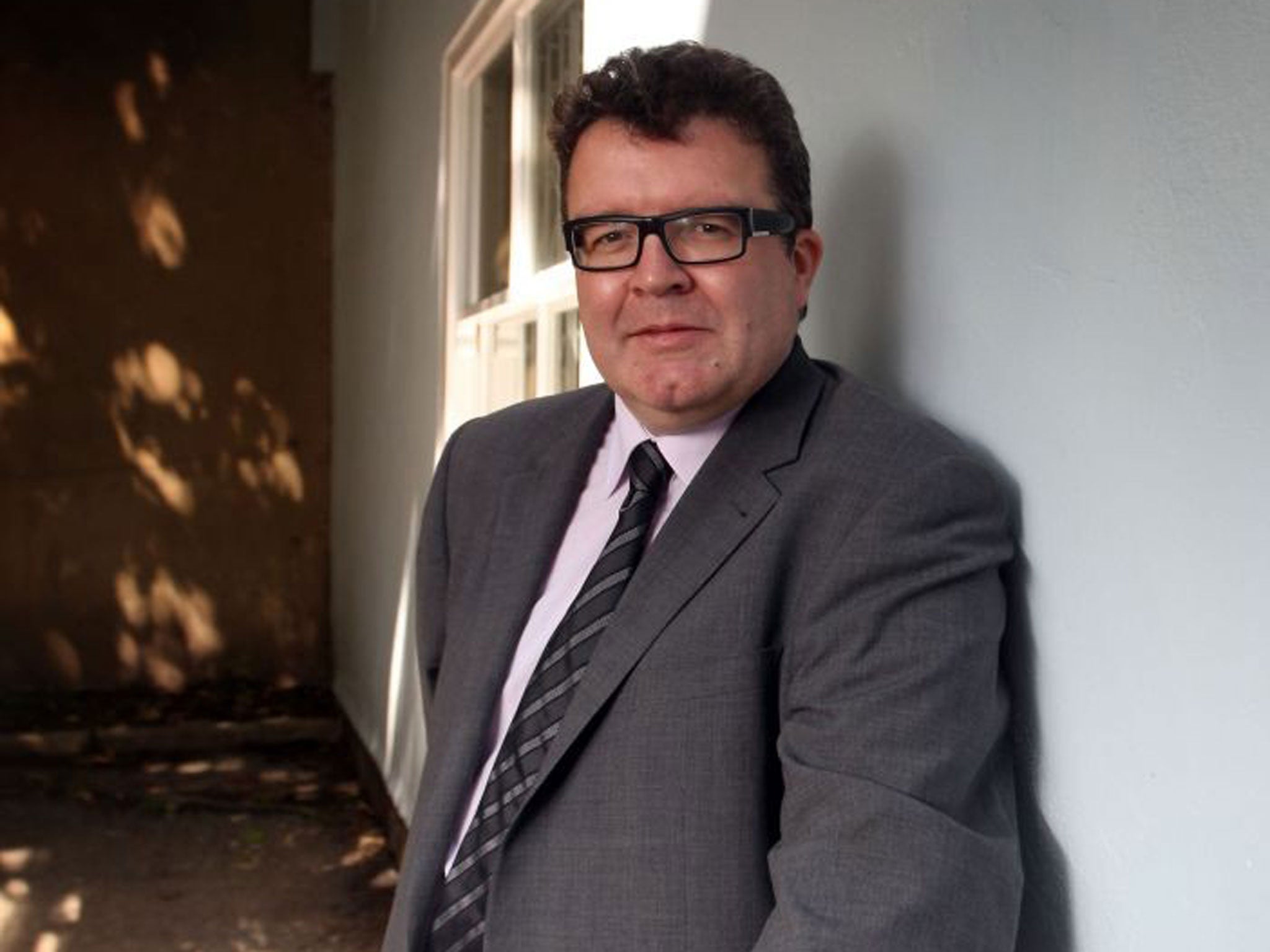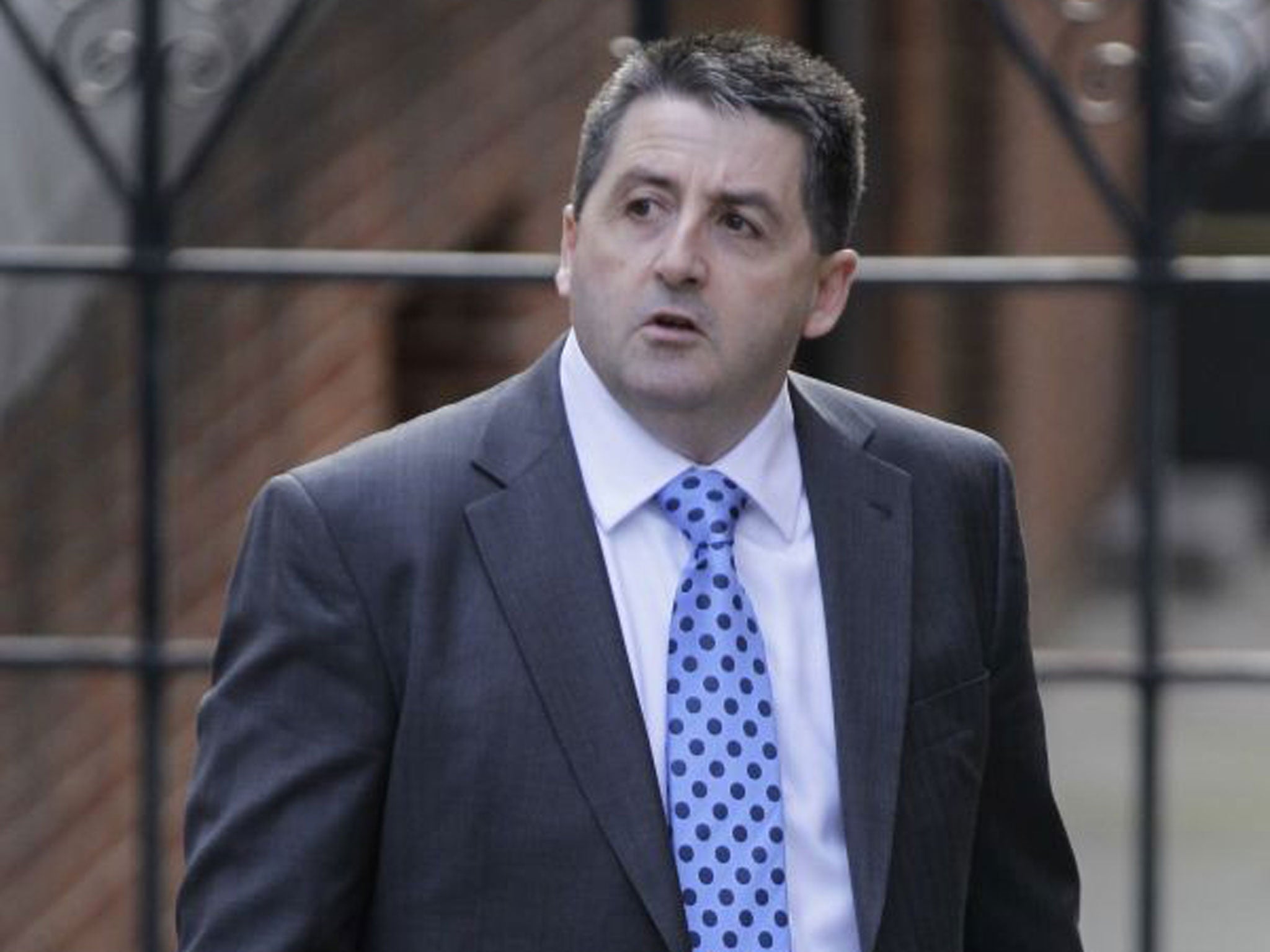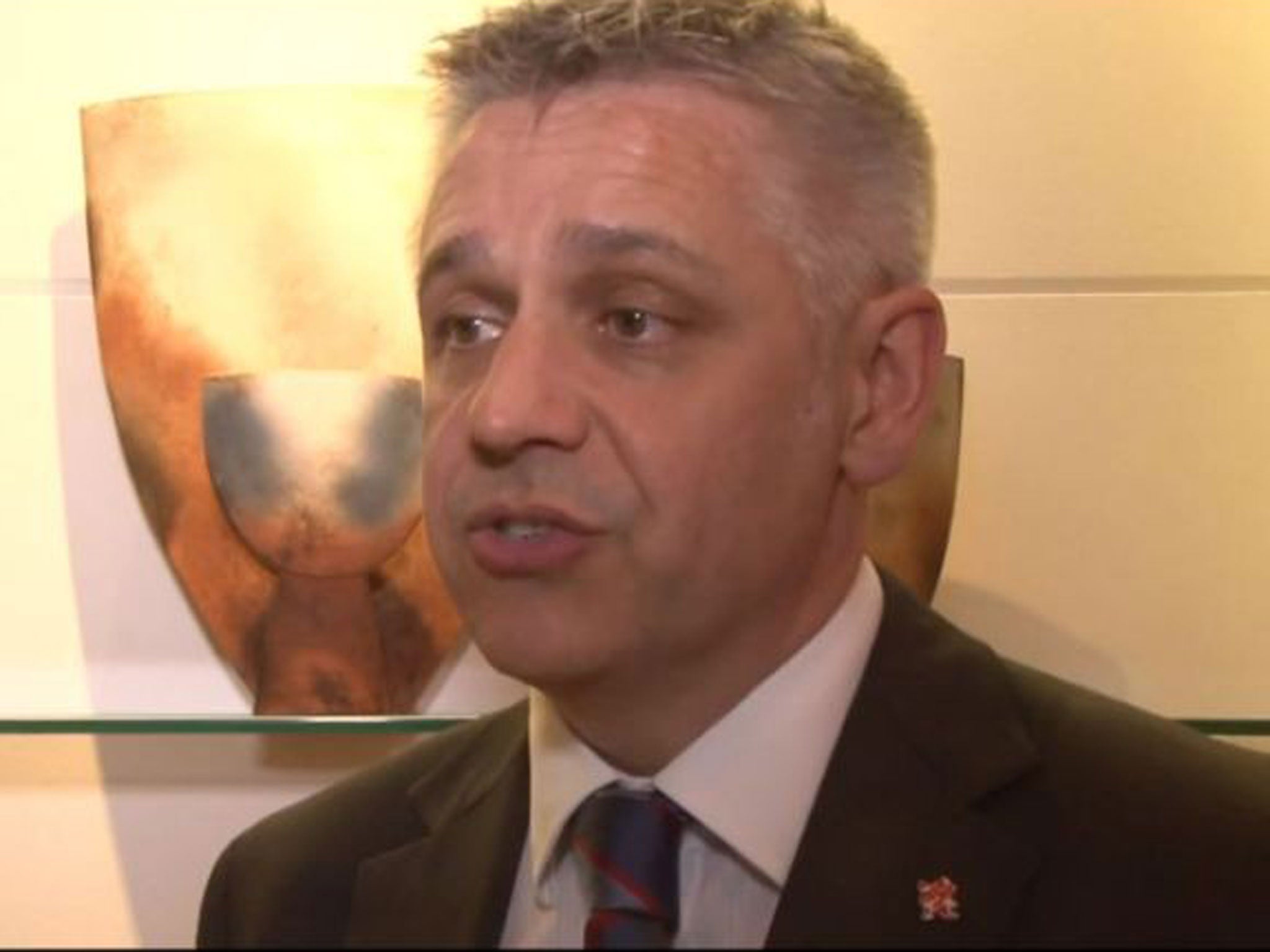‘Too hot’ report on police leaks to media was buried as Leveson Inquiry ignored Met’s bombshell intelligence report
Bombshell file on Met links to News International was dismissed by Leveson Inquiry - classified 2006 document alleged senior officer passed secret information on Met chief’s decisions to the ‘News of the World’

The Leveson Inquiry dismissed a police intelligence report that detailed an apparently corrupt relationship between a very senior former officer and the News of the World.
The classified document, dated April 2006, alleged that the officer was obtaining highly confidential information on decisions taken by Lord Blair when he was the Metropolitan Police Commissioner, and passing it on to the now defunct Sunday tabloid.
Robert Jay, the lead counsel to the Leveson Inquiry, who is now a judge, had stated that Scotland Yard did not provide him with a copy of the intelligence report until April 2012 – six weeks after it could have been raised publicly with Lord Blair in the hearings. Mr Jay did say, though, that he had been aware of the report’s existence earlier.
However, an investigation by The Independent on Sunday revealed that Mr Jay had been “informed of the existence of the document, its nature and the details of the intelligence” two months earlier, and weeks before Lord Blair, who is understood to have been keen to discuss the report’s implications with the then QC, took the stand.
A Yard source said: “We told them about the ... report and they said they didn’t want it. It was only when it was raised … that they then said we do want it and we gave it to them.”
On 16 April 2012, the existence of the suppressed report was first revealed by our stablemate The Independent, which reported on “a secret campaign from inside the highest ranks of the force to oust the former Commissioner Ian Blair”.
In a statement on the furore released last year, Mr Jay said: “The MPS first provided me with a copy of a police intelligence report on 23 April 2012, which was well after Lord Blair … had testified.”
Once the document was finally handed to the inquiry, Mr Jay said the Met claimed “public interest immunity” over it, which prevented Lord Justice Leveson from referring to it in public or considering it for the conclusions in his landmark report into inappropriate relationships between the press and the police.

However, the new disclosures have raised questions over whether the inquiry actually wanted to probe the most controversial areas of the relationship between senior Met echelons and the Murdoch media empire.
Ian Hurst, a high-profile victim of computer hacking by the News of the World – whose evidence on this subject was also rejected by Lord Justice Leveson – said: “Brian Leveson has been playing silly little games since the opening day of his inquiry. It is clear some areas were too hot for him to handle, the whole thing was stage-managed and the public are still no clearer about what really went on between the Met and News International. The public deserve better.”
Tom Watson, the campaigning Labour MP, said: “It appears that the murky relationships between senior police officers and News of the World (NoTW) executives have still not been properly investigated. This should be looked into by a parliamentary select committee.”
The 2006 intelligence report, created by Scotland Yard’s anti-corruption command, said a key NoTW hacking suspect, who shall be called Mr Root for legal reasons, was aware of unauthorised disclosures from Lord Blair’s “inner sanctum” to the former senior officer.

However, the alleged breach in Lord Blair’s senior management team, which regularly discussed matters of national security, was never passed on to the Commissioner.
In an interview with The IoS, Det Ch Supt Alaric Bonthron, the current head of the Met’s anti-corruption command, was asked whether he thought his predecessors should have warned Lord Blair that the integrity of his top team was being pierced by a senior former police officer.
He replied: “I can’t account for what structures were in place at that time and who did what. The DPS [Directorate of Professional Standards] is a very different beast now. None of that command team are left at all in the organisation. I know now that we have systems in place and ... where corruption is in place we are held to account by the IPCC. ”
Lord Blair first learned of the report when a whistle-blower handed it to him in December 2011 at the height of the Leveson Inquiry.
When he discovered that Met anti- corruption officers had intelligence to suggest his senior team had been compromised six years earlier yet told him nothing about it, Lord Blair visited Scotland Yard’s HQ in Victoria. He passed the report to detectives working on criminal investigations into corrupt police officers leaking sensitive information to the Murdoch empire and other newspapers.

Lord Blair, who led the Met between 2005 and 2008, asked his former colleagues to investigate the allegations, find out who knew about the breach and discover why he was not told.
It is understood that the Yard assured him the intelligence report, written by a named detective inside the Met’s powerful DPS, would be handed to Lord Justice Leveson to evaluate and consider for his report.
However, the former police chief was astonished when he was not questioned over the report’s implications during his time in the witness box in March 2012.
The senior former police officer, who shall be called “Zed” for legal reasons, has not been arrested by detectives investigating alleged leaks of information to journalists for payment. But other officers, including the former assistant commissioner of City of London Police and a Met borough commander, have been seized by detectives investigating unauthorised disclosures to reporters – despite no money changing hands.
News that the Leveson Inquiry ignored key evidence raises serious questions over whether it delivered on the aims of David Cameron when he established the milestone judicial investigation in July 2011.
After setting up the inquiry in the wake of the Milly Dowler scandal, Mr Cameron told the Commons: “What this country has to confront is an episode that is frankly disgraceful, accusations of widespread law-breaking by parts of our press; alleged corruption by some police officers; a failure of our political system over many, many years to tackle a problem that’s been getting worse.”
Later, he added: “No one should be in any doubt of our intention to get to the bottom of the truth and learn the lessons for the future.”
A Met spokesman said: “Throughout the Leveson Inquiry the MPS were scrupulous in disclosing to the inquiry everything that could be relevant to [its] deliberations.
“In February 2012, we informed the inquiry of the existence of the document, its nature and the details of the intelligence.
“In April, we were asked to provide a copy of that document, which we did. The MPS is content with the way this information has been handled and handed to the inquiry.”
A spokesman for Zed said: “These claims are utter nonsense and the implications are possibly defamatory.”
